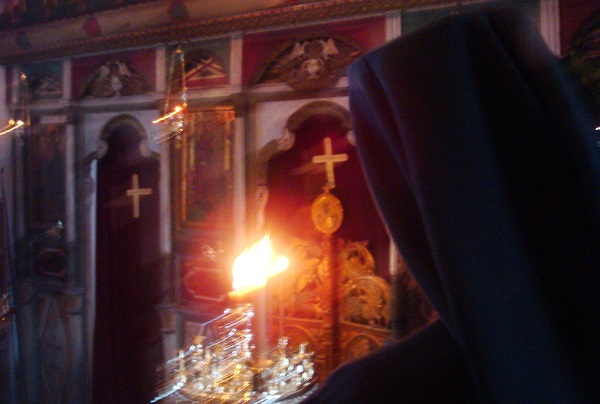Living Orthodox Great and Holy Lent
21 February 2018I have written on these electronic pages previously about Living the Orthodox Resurrection Service and Living the Orthodox Holy Week; now, to complete the trinity, albeit in reverse order, is my untrained take on living Lent.
It is difficult to truly experience the spiritual fruits of Holy Week, let alone the indescribable joy of Christ’s life-giving resurrection, without actively partaking in Great Lent.
Think for a moment about how much time and effort is required to win a professional sporting championship; players and coaches do not show up only in time to hoist the trophy.

By the same token, we should avoid showing up only on Holy Saturday evening to receive the Paschal Light. Living Lent, in order to reap the Resurrection harvest, takes sacrifice.
For Orthodox Christians, Lent is an “arena of virtues” and one reason why Greek Orthodox wish each other Kalo Agona (translated accurately but poorly to “good fight”) on Clean Monday, the commencement of Lent.
The fight is concurrently corporate and private; the faithful join together often in distinctive divine services, such as the Pre-sanctified Divine Liturgy and the Salutations to the Theotokos, while simultaneously striving secretly in prayer, fasting, the study of scripture and almsgiving.
The Gospel of Matthew (6:14-21) read on Forgiveness Sunday is particularly instructive for our internal fight to repent (change) using the spiritual tools provided to us by the Church:
And when you fast, do not look dismal, like the hypocrites, for they disfigure their faces that their fasting may be seen by men. Truly, I say to you, they have received their reward. But when you fast, anoint your head and wash your face, that your fasting may not be seen by men but by your Father who is in secret; and your Father who sees in secret will reward you.
Concerning fasting, we should bear in mind the following aphorism: There is more to Great Lent than fasting, and there is more to fasting than food.
Fasting — or any other sacrifice we make during Lent — is not an abstract concept or legalistic arrangement and should not be approached as such. Living Orthodox Great and Holy Lent should be a personal experience — not a theoretical code or set of rules one needs to follow with absolute rigidity. What benefit, spiritual or otherwise, is to fast as prescribed by the Church, for example, but be easily irritable and/or miserable during the Lenten period.
The practice of sacrifice during Great Lent is not a one-size-fits-all approach; we should undertake what we can, emulating the poor widow in the Gospel who gave two copper coins out of her poverty and, trusting in the Lord who nourishes those who with genuine love and authentic humility strive to serve Him.
In order to ensure we are on the correct path, though, the need for, and guide of, a spiritual father is essential; otherwise, we may rationalize faulty behaviour and justify inaction.
Christ became incarnate to save mankind; He became man (Theanthropos) so we, who are made in his image and likeness, can become “God by grace” as the Church Fathers teach.
The arena of virtues, therefore, is a blessed opportunity for the faithful to inch closer, step by step, to the ultimate aim and destination in life: holiness and salvation in Christ — the only Redeemer and Savior of the world.
We will make progress towards this purpose if we repent during Great and Holy Lent; if we change our behaviour; if we pay no heed to evil thoughts but instead nourish virtuous ones; if we become humble and forgiving; we will make progress towards eternal life if we love one another – including our enemies – and help our fellow man.
If we contest in the arena of virtues to acquire peace, patience, kindness and self-control (cf. Galatians 5:22-23), we will be transformed during Holy Week and experience the Resurrection as a life-altering event. If we contest in the arena of virtues, we will not revert back to our old self but begin our life anew, closer to Christ.






